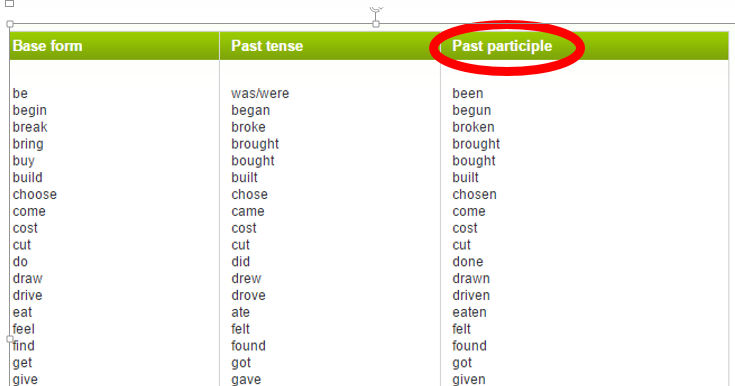
.png)


Irregular verbs refers to the verbs which have same or different present and past tense forms. Regular Verbs are the verbs with usual simple past and past participle forms. Let’s take a read of these examples to understand the difference between regular and irregular verbs: Base formĬontent: Regular Verbs Vs Irregular Verbs Type the correct verb form for the past simple.Conversely, there are certain verbs which either change their forms completely or remain the same, these are known as Irregular Verbs. The below exercises will test the irregular forms from the verb lists above. It's practice time!Įxercises for Learning English Irregular Verbs Online One day irregular verbs may disappear from English, but for now, it's important for every student to learn them. Scroll down or click here to do exercises on the above irregular verb list for beginner students. Here is a list of 45 irregular verbs that beginner ESL students should learn. There are over 400 English verbs that use an irregular form. Passive Voice ( be + past participle): My arm was broken yesterday.Past Perfect ( had + past participle ): I hadn't broken my arm until I started snowboarding.Present Perfect ( have + past participle): I have broken my arm twice in my life.How to Teach English Conversation Class.'Be used to'" / 'Use to' / 'Get used to'.The Difference between "Other" & "Another".The Difference between 'a few/few/a little/little'.


 0 kommentar(er)
0 kommentar(er)
